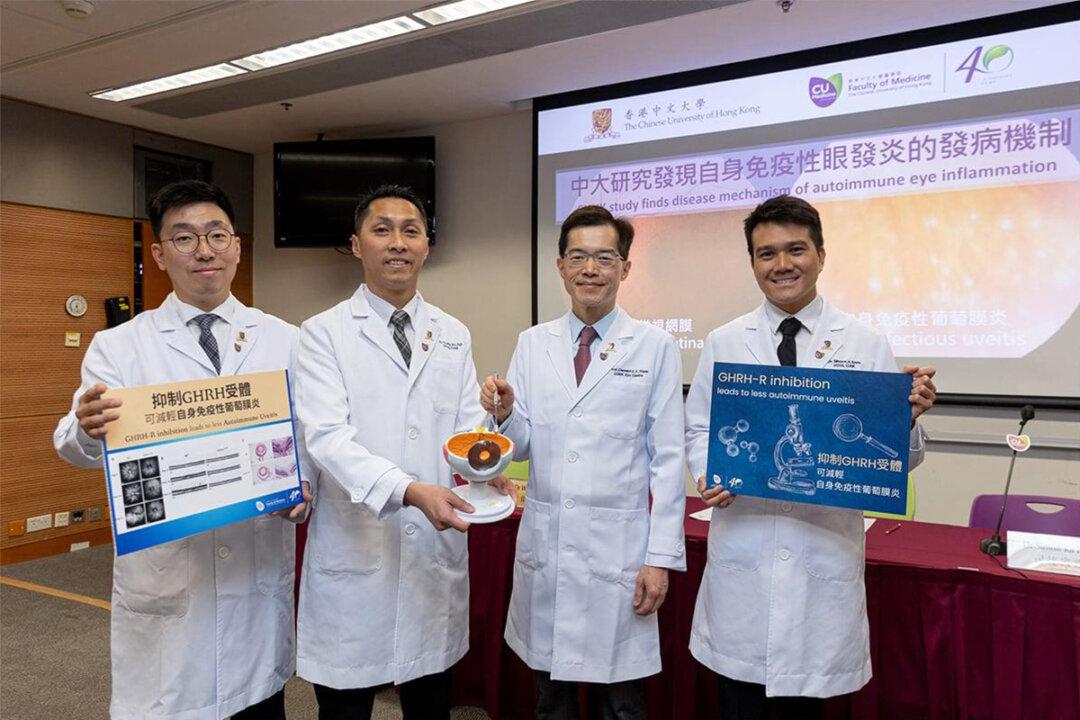Autoimmune uveitis is an ocular disease caused by inflammation of the tissues inside the eyeball, which can lead to permanent blindness. A research team from the Faculty of Medicine at the Chinese University of Hong Kong (CUHK) discovered that GHRH (Growth Hormone-Releasing Hormone), a biological pathway that induces immune choroiditis, can be inhibited using currently available drugs and is expected to become a new treatment means for the disease.
The team pointed out that the uvea is the inner tissue of the eyeball, located between the sclera and the retina. Because of its dark purple color, it is sometimes called the choroid. Infectious uveitis is caused by bacterial or viral infection. The patient’s lymphocytes often show abnormal responses to retinal antigens, which can evolve into an autoimmune disease in the long term.




